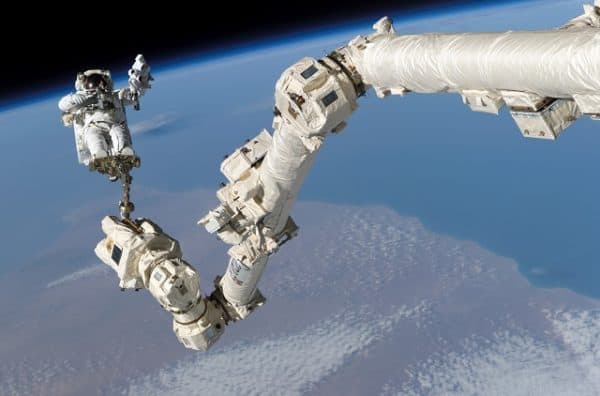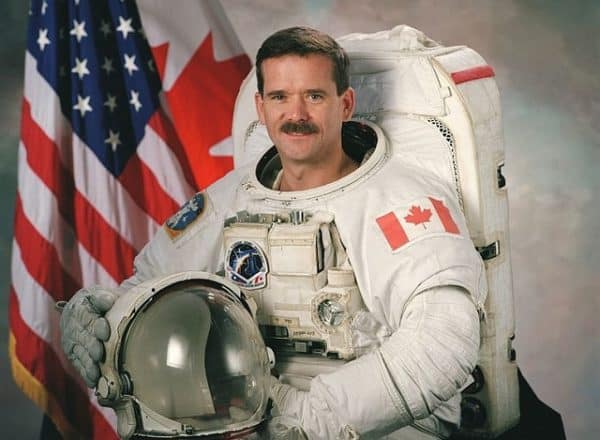

Space exploration is becoming a big deal again, as national space agencies face competitions from a growing number of private companies to come up with the newest tech and the boldest plans for space travel. And with the Canadian Space Agency set to unveil its long-awaited Space Strategy later this month, it’s time to look at how Canada might figure into the 21st century space race.
Next week, NASA will make a show of announcing its next fleet of astronauts, picked from over 18,000 applicants, all vying to take part in a slew of future US-led space missions. The moon is the near-target, with NASA planning on setting up an orbiter around Earth’s satellite to serve as a testing ground in preparation for the eventual mission: getting human beings to Mars.
“With more human spacecraft in development in the United States today than at any other time in history, future astronauts will launch once again from the Space Coast of Florida on American-made commercial spacecraft and carry out exploration missions that will take humans farther into space than ever before,” reads a statement from NASA.
But apart from NASA’s plans, there is much to be excited about, space-wise. Many countries that maintained only fledgling space programs in the past are now reinvesting and about to take flight. Japan, China and India all have moon missions set for the next few years, the European Space Agency and Russia’s Roscosmos are together planning a big Mars mission and even countries with smaller space programs like New Zealand and Malaysia are gaining launch capabilities and shooting rockets into space.
Over the past decade, however, it’s been the push by private enterprise into space exploration and travel that has really turned heads. SpaceX, founded by entrepreneur Elon Musk, has established itself as a solid player in aerospace manufacturing and transport and Jeff Bozos’ Blue Origin and the joint Boeing and Lockheed company, United Launch Alliance, are also building so-called heavy-lift vehicles for space flight. And the new enthusiasm from the tech sector is a global phenomenon, as witnessed by the five teams currently competing for the Lunar X Prize, all of whom are gunning to put landers on the moon within the year.

The question, of course, is where is Canada in all this? The CSA has had some successes over the past few years with endeavours such as the completion of the James Webb space telescope, the continuing work by the Canadarm2 at the International Space Station and participation in the NASA-led OSIRIS-REx Asteroid Sample and Return mission.
Pushing forward, though, a lot will depend upon what’s found in the new Canadian Space Strategy, which the government plans to unveil sometime later this month. The Space Strategy is being billed as a research and innovation agenda with a ten-year horizon that aims to “support growth in the sector and leverage the benefits of space for all Canadians.”
A consultation period leading up to its release along with the re-establishment of the Space Advisory Board have given some indication of the tone and direction of the plan, said to involve growing Canada’s space sector, encouraging more space tech innovation and further strengthening international cooperation on space missions. But the specifics have yet to be divulged.
Not a surprise, says Marc Boucher, former director of the Canadian Space Commerce Association and co-founder of SpaceRef Canada, who says that after the short consultation with Canadian space stakeholders, government representatives are keeping their cards pretty close to their chests.
“I don’t know how much new meat will be in there,” says Boucher in conversation with Cantech Letter. “But I think the CSA is moving in a better direction, now that the handcuffs are off a bit from the previous government. People can talk more now and try to work with the means they have.”

But like others connected to Canada’s space sector, Boucher is critical of what he sees as the chronic underfunding of our space program, one which has seen its budget stalled at $300 million for a couple of decades now. “Is Canada doing enough to innovate and compete in space?
“Many would argue no,” says Boucher. “Space budgets are increasing in a lot of countries but Canada’s is not. We’re falling behind.”
That sentiment is echoed by Robert Godwin, former space curator at the Canadian Air and Space Museum and head of Apogee Books, which publishes books on the history of space exploration.
“Canada’s decisions are really governed by what other space programs with launch capabilities are doing,” says Godwin to Cantech Letter. “The CSA’s hands are tied that way. At the same time, that hasn’t prevented it from doing amazing things.”
As far as the Space Strategy goes, Godwin points to Canada’s history of innovation in satellite surveillance and communication, something on which he says we are still a world leader.
“Tracking systems and radar satellite technology are things we’re really good at,” says Godwin. “We started out as this vast, untracked wilderness, and it was expensive and difficult to communicate from one end of the country to the other, so we got good at it. I’m hoping [the Space Strategy] will keep us going in that direction,” he says.
“There’s this long legacy of success in developing aerospace technology for areas like surveillance for shipping or forestry monitoring and pollution monitoring. Hopefully we’ll be doing more of that,” Godwin says.
Leave a Reply
You must be logged in to post a comment.




 Share
Share Tweet
Tweet Share
Share




Comment